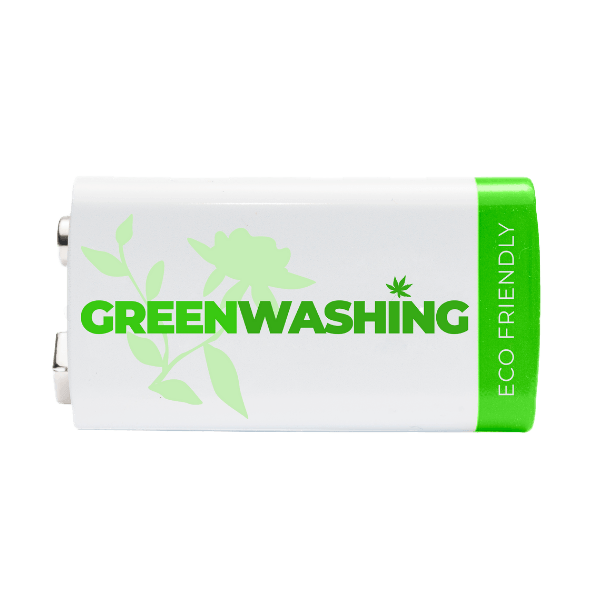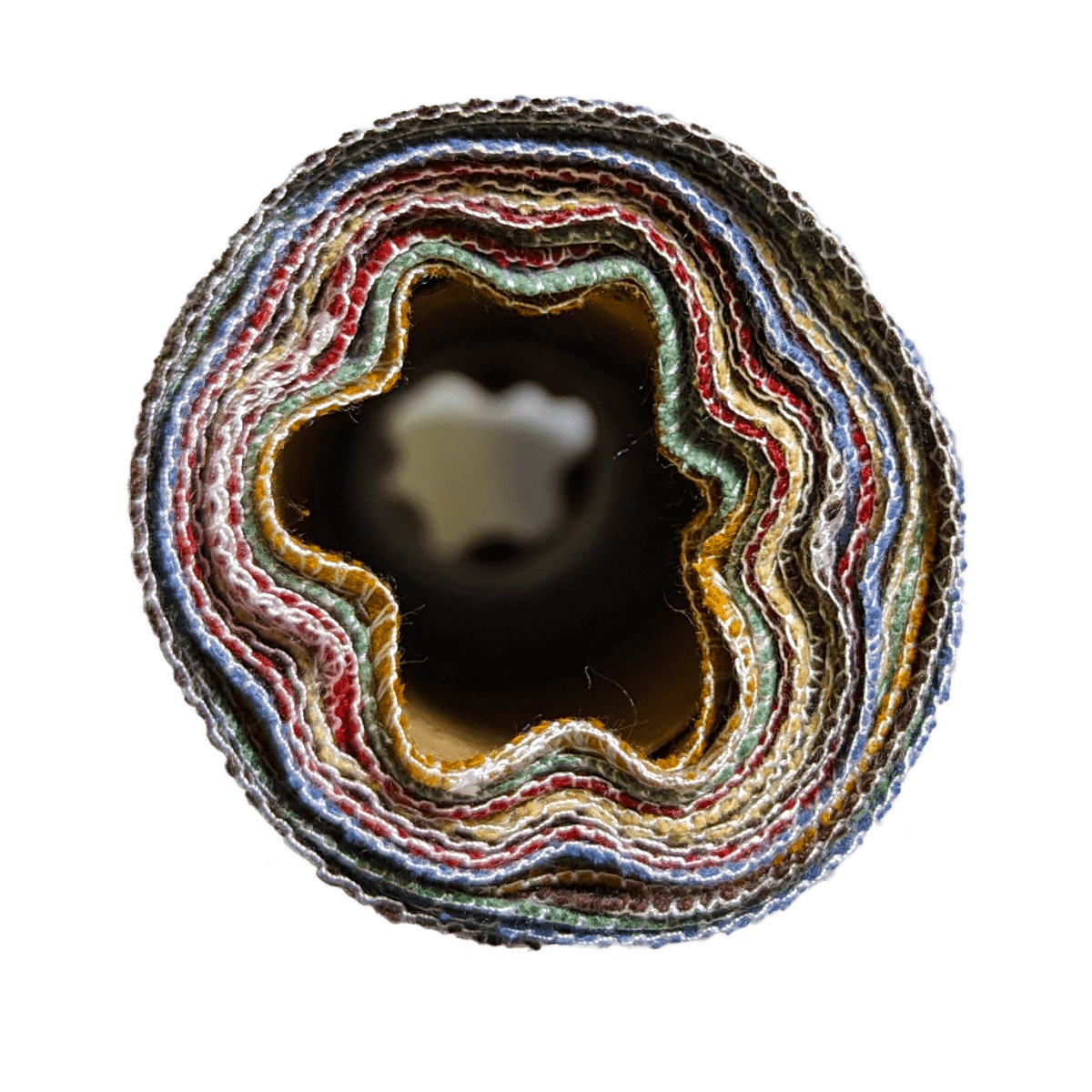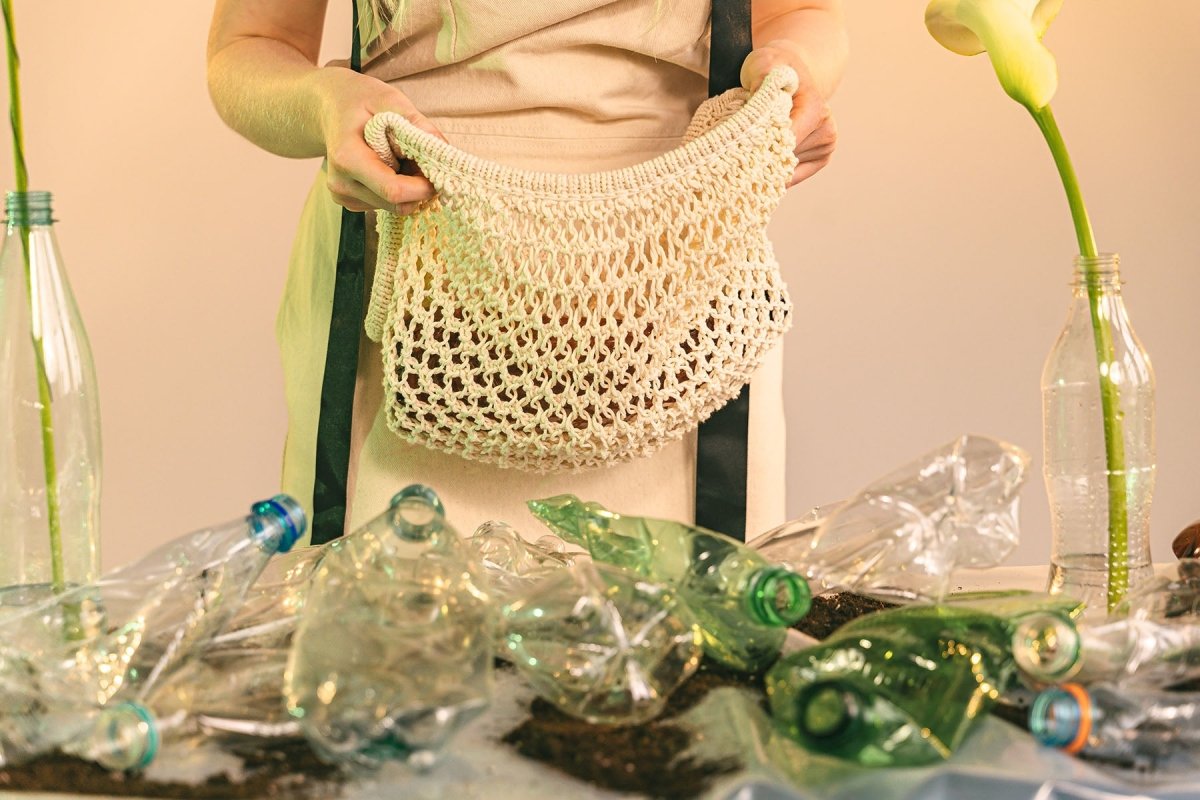Greenwashing is drowning the consumer market. Brands are knowingly deceiving consumers instead of supporting the opportunity to create a powerful zero-waste movement. Greenwashed marketing is a growing problem as buyers are making more conscious choices than ever before.
What is Greenwashing?
The Greenwashing definition created by Treehugger paints a perfect picture.
Greenwashing is when companies mislead consumers by claiming to be eco-friendly or sustainable only as a marketing scheme rather than a core business model principle.
Let’s call it what it is: false advertising. And it’s deceptive at its core.
42% of consumers say they tend to trust brands more if they make statements about sustainability.
It’s important to note here: this survey says they trust brands if they make statements about sustainability – it says nothing about proving those statements. And you bet marketing professionals know this. They lean into it.
They don’t have to prove their sustainability. The majority of consumers will buy naively.
These companies often spend more money on advertising their “sustainability” than actually PRACTICING sustainability. It’s built on perception and creating an eco-friendly front to lure in new and existing consumers wanting to support sustainability.
Marketing companies and large corporations are realizing that consumers are buying more consciously. So instead of catering to this positive change in buyer habits, they are taking advantage of naive consumers who mean well but don’t do enough research.
How do we know this is true? Well, there are plenty of real-life examples if you take a look a closer look at the products on the shelf next time you’re browsing for a new hair product. Greenwashing has been proven in a recent study on sustainable fashion that caught big brands in the action of making false claims and unfounded statements.
The Changing Markets Foundation found “rampant greenwashing across their voluntary commitments and products, with as much as 59% of green claims for the products we assessed being unsubstantiated or misleading.”
This study included major brands lying about their commitment to the environment, compliance with sustainable practices, and eco-friendly production.
Unfortunately, greenwashing plays a role in almost every consumer market.

Why Is Greenwashing Bad For The Environment?
Greenwashed marketing is causing harm in many ways. Aside from harming consumer trust, it further damages our environment and adds to the already-large issues we face from our wasteful patterns.
It Creates False Illusions About The Progress of Our Environment.
We’re falsely led to believe that times are changing and large corporations finally care about the environment.
As consumers, we’re suddenly noticing large corporations are paying attention to the environment and “providing solutions.” Labels make bold claims, and marketing suddenly feels more relevant to our values. But this isn’t by chance. The sad truth is, most of these companies aren’t actually helping the environment at all.
They’re simply playing on our emotions to make more sales.
Greenwashing Marketing Takes Advantage of Consumers.
There are no regulations or formal entities to enforce sustainable practices. So you have to take a brand for its word, or do your research – thoroughly. Sadly, many of us really do care but we don’t have the time or we lack the knowledge to spot greenwashing.
Plus, greenwashing has become increasingly “smart.” Marketing has geared all its energy towards convincing consumers that their products = responsible choices. So much so that even some more educated consumers fall victim to subtle or clever greenwashing.
Large Companies Are Trampling on Small Companies.
Greenwashing has done a lot of damage to the underdogs. Small companies that have been truly sustainable and eco-friendly for years are finding themselves overrun by greenwashing and pricing they can’t compete with. They’ve been “green” since before it was cool, yet the big brands are the ones claiming innovation and earth-friendly changes.
The Obvious Problem: Our Environment Suffers.
Global warming, pollution, and many other environmental issues continue to grow as we support greenwashed brands instead of zero-waste stores and sustainable alternatives. This is a global epidemic, considering almost half of consumers consider sustainability important in their purchases. If we had truly sustainable and green products widely available, this could create massive change.
These consumers are trying to make an impact on the environment, and greenwashing is ruining their chances. Every purchase you make as a consumer contributes – so make it count and read on to understand how to avoid greenwashed products when you make a purchase.

How to Spot Greenwashing Marketing & Greenwashing Examples
One of the best defenses against falling victim to clever greenwashing marketing tactics is to learn everything you can about true sustainability. Understanding how it functions and benefits the environment will make your job a lot easier when you’re browsing for your next purchase.
Keep these straighforward tips in mind:
Do Your Research! Don’t Assume a Label is Telling the Truth.
“Natural” doesn’t mean sustainable. Understand which ingredients are sustainably derived and healthy for your body. It does take effort to research and hold yourself accountable – but for the sake of our planet and ourselves, we must continue to commit to making responsible purchases.
And if you can’t find enough information… that’s usually your answer.
Look on the label, read websites, ask questions. If you can’t find the answer, you can’t assume a product is sustainable just because they say it is.
Look for generic phrases, wording, and claims that aren’t verified.
Here are some common examples of greenwashing phrases:
- Plant-based
- Eco-friendly
- Compostable /Biodegradeable
- Natural and Non-toxic
- Green
- Recyclable
- Sulfate-free
- BPA-free
- No dyes
- No harsh chemicals
Pay Attention to Packaging – Look for Greenwashed Colors or Textures
We’re visual beings. Many brands use deceptive colors and textures to convince customers of their ‘commitment’ to sustainability, even if it’s subtle.
Do they use floral, green designs, bamboo, and wood textures? You’ve probably seen it before. These visual aspects create a subconscious connection to our desire to be mindful of the environment. But don’t let pretty packaging alone sell you on sustainability.
Are they packaged in plastic? If so, it’s probably not sustainable.
Pay attention to symbols that aren’t nationally recognized. Keep an eye out for fake recycling symbols, leaf symbols, pictures, or graphs that don’t hold any credibility.
Why Zero Waste Stores Are The Solution to Greenwashing
One of the best shortcuts you can take and feel confident about is finding your go-to zero-waste store. Many zero-waste online stores offer free shipping, bundle discounts, and specific information about brands they carry. They offer information on sustainable items and have certifications or data to prove it.
- Zero-waste stores are some of the most authentic brands. They function at the root of sustainability and taking care of the environment.
They exist not to make money but to eliminate plastic and single-use products.
- They’re usually highly transparent about their processes and sustainability. Theyll be open about their successes, challenges, and downfalls because they understand there is no perfect solution. Most zero-waste brands have an owner who is easy to contact, open, and honest. And zero-waste stores don’t use typical marketing schemes because they genuinely aim to create LESS waste.
It doesn’t help their mission to sell you things you won’t use or don’t need.
- Zero-waste stores vet their products thoroughly. Because they aim to create a world of less waste, they want to be sure the brands they represent align with their standards. Zero-waste products are often handmade, full of innovation, intention, and thoughtful touches. You also support small businesses that are trustworthy and better for the environment.
- Zero-waste shops create ZERO WASTE! Most “recyclable” and “eco-friendly” products that are greenwashed are not recyclable. Don’t fall victim to wishcycling.
Easy Zero Waste Alternatives and Swaps To Avoid Greenwashing
At Zero Waste Outlet, our goal is to provide resources and products to support you on your zero-waste journey – because it’s personal!
Every choice you make creates an impact – it’s up to you whether your purchases will make a positive impact or a negative one. We make it easy for you to swap single-use products for sustainable, reusable, and plastic-free products.
There are plenty of zero-waste products available in almost every category. Feel overwhelmed? Start small. Choose one thing to start.
Some of our favorite easy, no-fuss swaps include items like:
- Zero-Waste toothpaste – easy to use, easy to travel with, and no recycling needed.
- Sustainable kitchen products – made from bamboo or biodegradable materials. These can be brushes for your dishes, vegetable scrubbers, or natural sponges.
- Cleaning products – many are easy enough for a DIY project and use simple ingredients.
- Zero-waste detergent and washes – you can find plenty of laundry, dish, and hand soap options!
How can you start today?
Take a look in any area of your house. You’ll probably find you own quite a few greenwashed products if you look closely at the labels and packaging, or do a little research on the brand.
What zero-waste products can you swap them for? We’re cheering you on and would love to help you answer any questions you have about our products.
Happy shopping & thanks for taking care of our environment!



